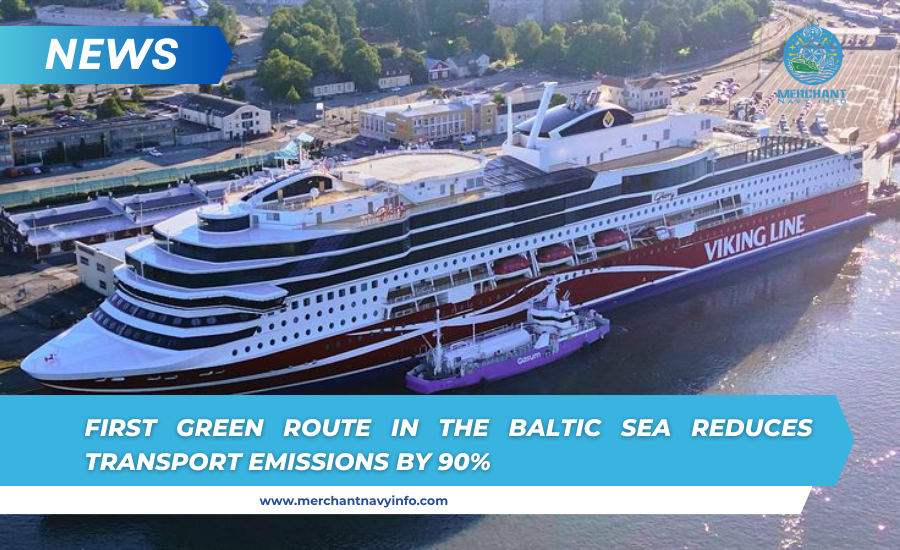
First Green Route In The Baltic Sea Reduces Transport Emissions By 90%
The first ecological shipping corridor in the Baltic Sea has opened. The new corridor, which runs from Vajirmala (Sweden) to Turku (Finland), has reduced emissions by 90%.
The initiative is a collaboration between Viking Line, Scandic Trans, and Orkla Suomi. In July, the latter started regular shipping operations with biofuels.
Felix ketchup is produced at the Orkla Group’s largest ketchup plant in the Nordic region and is now transported along the 683-kilometer route using environmentally friendly biofuels.
Scandic Trans trucks travel from Korsholm to the Viking Line terminal in Stockholm and then cross the Archipelago Sea on Viking Line’s smart ships, Viking Glory and Viking Grace. Upon arrival in Turku, the cargo will be delivered to the Orkla Logistics Center.
The switch from conventional fuels to biofuels significantly reduces CO2 emissions. A single trip now emits just 102 kg of CO2, compared to 1,512 kg, equating to a reduction of around 190 tonnes per year.
The switch to biofuels benefits both land and sea transport. Scandic Trans trucks run on hydrotreated vegetable oil, while Viking Line’s ships use liquefied biogas from organic waste supplied by Gasum.
Viking Glory and Viking Grace, which typically run on LNG, are built to accommodate future biofuels and synthetic fuels, making them more sustainable.
Industry experts say the move is necessary for the environment. Scandic Trans CEO Mikael Löfqvist spoke of the transformative impact of integrating biofuels across the transport chain, noting that transparency in reporting emissions by mode is essential to improving the transport industry’s environmental reputation.
Hari Tamminen, Viking Line’s director of shipping, said the opening of the Green Freight Corridor had generated much interest across the Nordic region, and he hoped more companies would soon join the sustainability initiative.
Viking Line also offers passengers and attendees a biogas option that reduces trip emissions by 90 percent, demonstrating the company’s commitment to climate-friendly practices.









